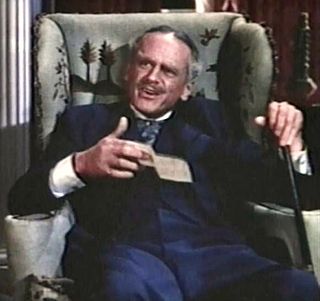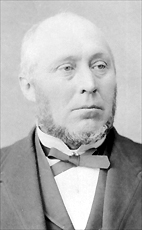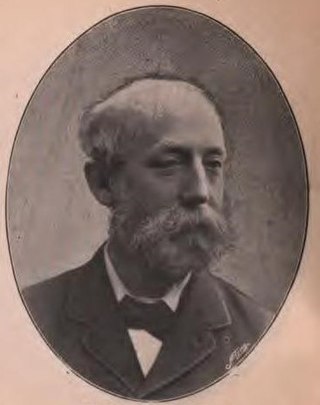Wightwick is a part of Tettenhall Wightwick ward in Wolverhampton, West Midlands, England. It is named after an ancient local family the "de Wightwicks". It is on the western fringe of Wolverhampton and borders the rural South Staffordshire area that includes neighbourhoods such as Perton.

Wightwick Manor is a Victorian house in Wightwick Bank, a suburb of Wolverhampton, West Midlands, England. It was commissioned in 1887 from the architect Edward Ould by Theodore Mander of Mander Brothers, a Wolverhampton paint and varnish manufacturer. It stands adjacent to the Old Manor, a late sixteenth or early seventeenth-century building that was the original residence on the site.
Wednesbury was a borough constituency in England's Black Country which returned one Member of Parliament (MP) to the House of Commons of the Parliament of the United Kingdom from 1868 until it was abolished for the February 1974 general election.
The Mander family has held for over 200 years a prominent position in the Midland counties of England, both in the family business and public life. In the early Industrial Revolution, the Mander family entered the vanguard of the expansion of Wolverhampton, on the edge of the largest manufacturing conurbation in the British Isles. Mander Brothers was a major employer in the city of Wolverhampton, a progressive company which became the Number One manufacturers of varnish, paint and later printing ink in the British Empire. The family became distinguished for public service, art patronage and philanthropy. Charles Tertius Mander (1852–1929) was created the first baronet of The Mount in the baronetage of the United Kingdom in the Coronation honours of George V, on 8 July 1911.
The Mander baronetcy, of The Mount, Tettenhall Wood, in the County of Staffordshire, was created in the Baronetage of the United Kingdom on 8 July 1911 in the Coronation honours of King George V, for Sir Charles Tertius Mander, English varnish and colour manufacturer and public servant.

Miles Mander, was an English character actor of the early Hollywood cinema, also a film director and producer, and a playwright and novelist. He was sometimes credited as Luther Miles.
Wolverhampton East was a parliamentary constituency in the town of Wolverhampton in Staffordshire, England. It returned one Member of Parliament (MP) to the House of Commons of the Parliament of the United Kingdom.
John Baird was a British dental surgeon and Labour Party politician.
Sir Charles Tertius Mander, 1st Baronet JP, DL, TD was a Midland manufacturer, philanthropist and public servant, of Wolverhampton, England.
Sir Charles Arthur Mander, 2nd Baronet JP, DL, TD was a public servant, philanthropist, and manufacturer, as managing director of Mander Brothers, the family paint, varnish and inks business established in 1773.
Sir Charles Marcus Mander, 3rd Baronet was an industrialist, property developer, landowner and farmer. He was known as Marcus Mander to his family and friends.
Sir Charles Nicholas Mander, 4th Baronet is a British baronet, historian and businessman.
Mander Brothers was a major employer in the city of Wolverhampton, in the English Midlands, a progressive company founded in 1773. In the 19th century the firm became the number one manufacturers of varnishes, paints and later printing inks in the British Empire. In the twentieth century it developed its product range in industrial coatings and inks, as well as commercial property.

Henry Nicholas Paint was a Canadian politician, shipowner and merchant.

Sir Alfred Hickman, 1st Baronet was a British industrialist and Conservative party politician who was a Member of Parliament (MP) between 1885 and 1906.

(Mary) Rosalie Glynn Grylls, was a British biographer, lecturer and Liberal Party politician. In 1945 she became known as Rosalie Lady Mander.
The North West Staffordshire by-election was a Parliamentary by-election held on 31 July 1907. The constituency returned one Member of Parliament (MP) to the House of Commons of the United Kingdom, elected by the first past the post voting system.
John Mander was a British political commentator, writer, translator and poet.
The Mander Centre is a major shopping centre in Wolverhampton City Centre, in Wolverhampton, England, developed by Manders Holdings Plc, the paint, inks and property conglomerate, between 1968 and 1974. The site occupies four and a half acres comprising the old Georgian works and offices of the Mander family firm, founded in 1773, as well as the site of the former Queens Arcade, which had stood on the site since 1902.





